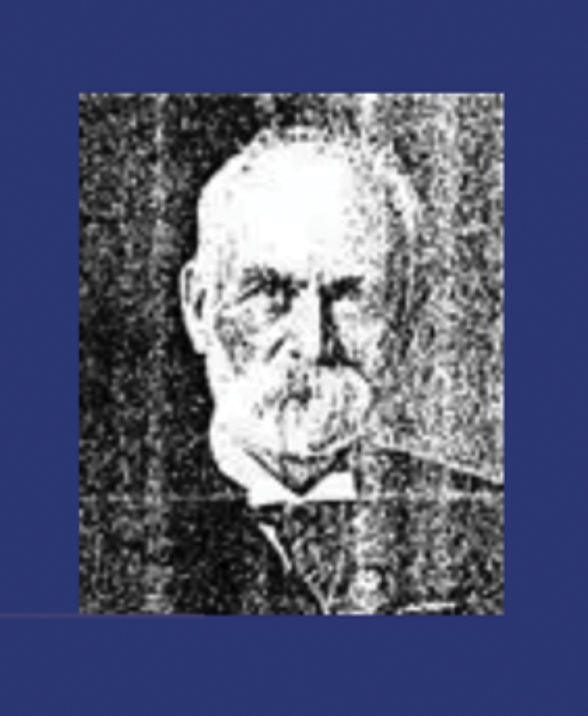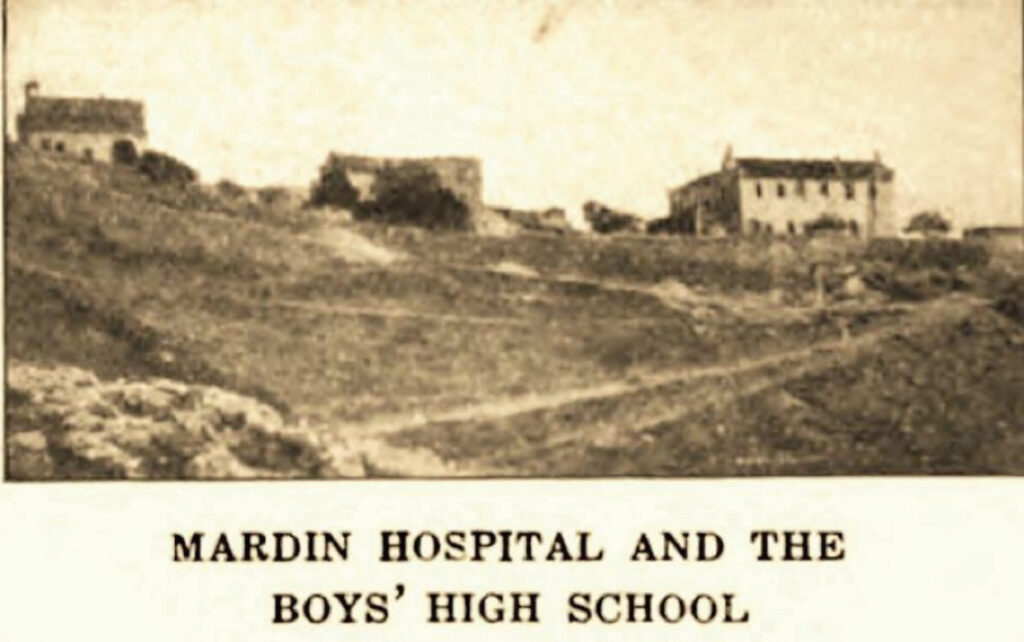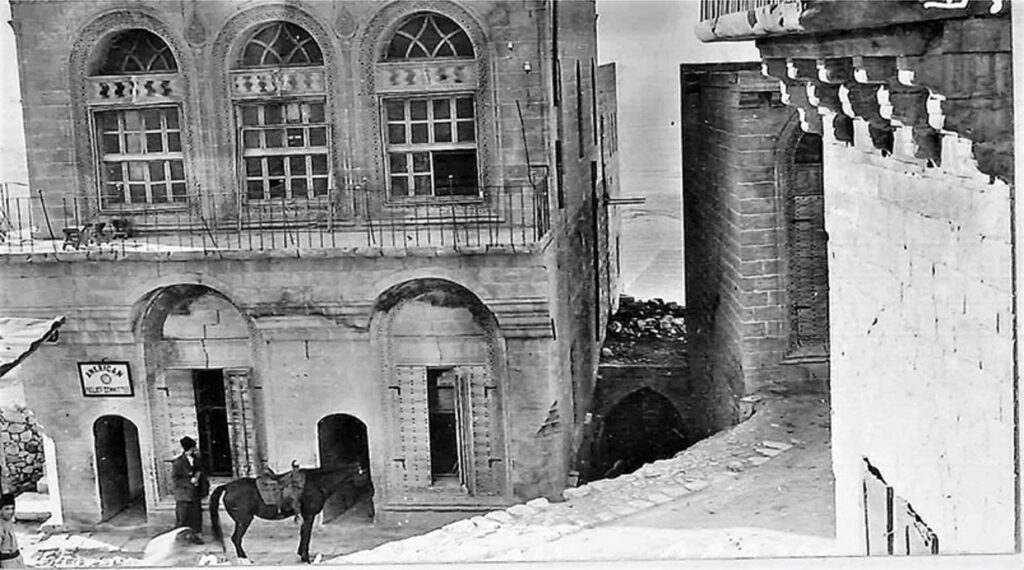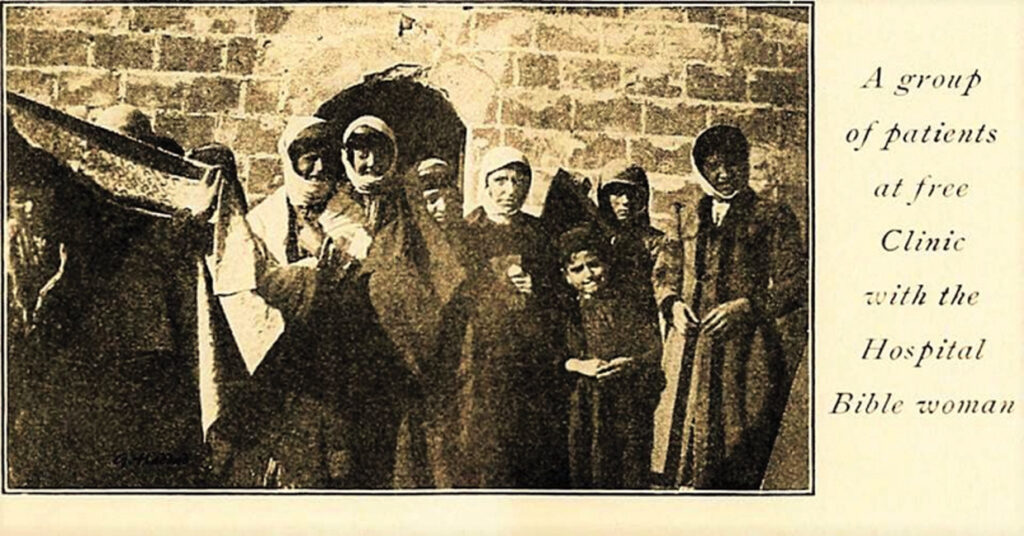Dr.Thom:The Story of the AmericanMissionary in Ottoman Land
The war years are a time of great sacrifice as well as years of great suffering.
These were the years when the American doctor Daniel Morrison Thom came to the Ottoman lands.
When Doctor Thom arrived in Mardin on November 14, 1874 as a member of the Protestant Board mission, the foundations of an American presence were laid in the city. An American hospital, two American boarding schools and a boarding house were opened in the Mişkinkapı (Diyarbakırkapı) area at the entrance of the city. Doctor Thom started to serve the people of Mardin as a medical missionary.
According to what we learned from Professor İlber Ortaylı, the opening date of Mardin American Girls’ School is 1864. There was also the American Boys School in the same area, and the number of students at that time was 37. But the opening of the American Hospital, which will have the greatest impact on the fate of the city and the region, coincides with the year 1880. Dr. Morrison Thom’s main place of duty was the American hospital and he would examine his patients personally.

The first Protestant school in the Ottoman Empire was opened in Beirut in 1824 and by 1886 this number had reached 400. In addition to the schools, there were social facilities such as hospitals, dispensaries and dormitories. These schools were mostly in Syria, Lebanon, Palestine, Çukurova and Mesopotamia. Regarded as a new state compared to the world history, the USA aimed to have a say over the Christians in the region and to gain reputation in the eyes of the local people by supporting Protestant schools.
Due to the lack of clean water, the most common diseases in the region in those years were contagious and fatal diseases such as bloody diarrhea, diphtheria and typhus. Women had birth-related infections, bleeding, and other diseases.There was a separate ward for women in the hospital and Dr.Thom with his team, took care of patients not only from Mardin and its surroundings, but also from Diyarbakır and Harput. Secondary surgeries could be operated in the hospital, but in larger cases, Dr. Thom was desperate.
The people of Mardin showed great interest in the hospital and Dr. Thom decided to enlarge the building and with the initiative of the American mission representation, the Ottoman State allowed this. Ottomans officially recognized Protestantism as a sect and the opening of the school and hospital in Mardin was immediately after that decision.
The American Hospital in Mardin was expanded in 1911 and the number of rooms increased. The upper floor of the building contained the operating room, dressing room, nurse’s room and women’s ward, and downstairs a large men’s ward, cellar, kitchen and Dr.Thom’s room. A pharmacy was opened at the entrance of the building. Thus, patients could both receive treatment and obtain their medicines free of charge.
Doctor Thom stayed in Mardin for exactly 40 years. He learned Turkish, Arabic as his mother tongue and communicated more easily with the local people. He has become a person loved by all. He lived in the land he came from as a missionary like a real Mardin citizen. He admired the ancient history of the city and whenever possible would go on horseback rides and go to nearby villages.
The grandparents of thousands of people living in Mardin today who lived two generations ago, probably owe their lives to this hospital and Dr.Thom.

The First World War, which disturbed the whole peace of the region, and the deportation decision taken a year later were the beginning of dark days for Dr.Thom and the Protestant minority in the city.
Deciding to take measures to reduce the non-Muslim population in the region the Ottoman Empire demanded that Dr.Thom and the entire Board mission leave Mardin in line with the deportation decision. However, Dr. Thom did not want to return to America.
He took his wife and went to another Turkish city – Sivas- and continued to serve there informally. He hoped to return to Mardin again but could not.
Because he got the typhus.

He was 70 years old when he died on November 8, 1915.
I hope one day his grave will be found and honored and I want to send my good wishes to all healthcare people who work for humanity like Dr Thom.
*Murat Erdin, writer and lecturer living in Istanbul

